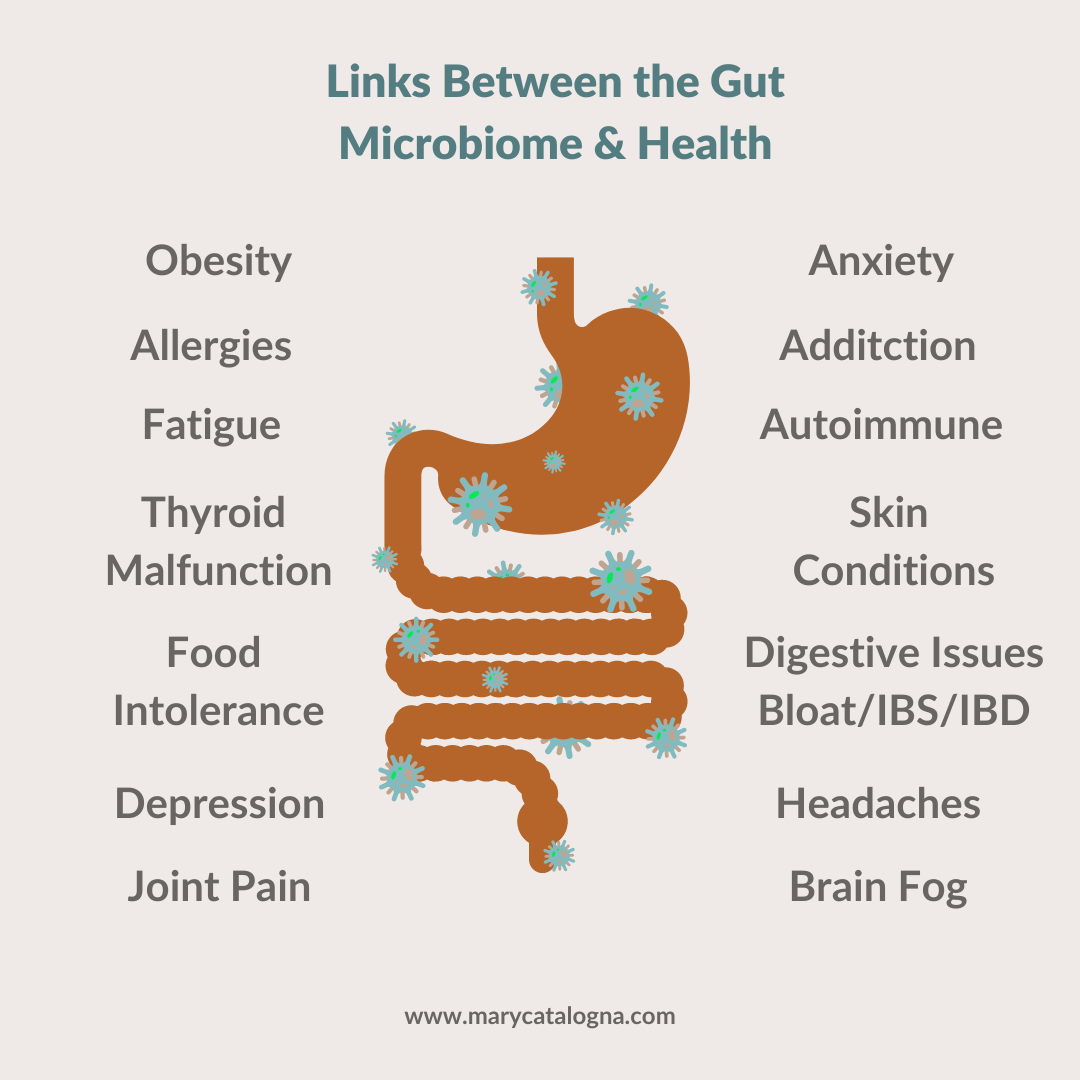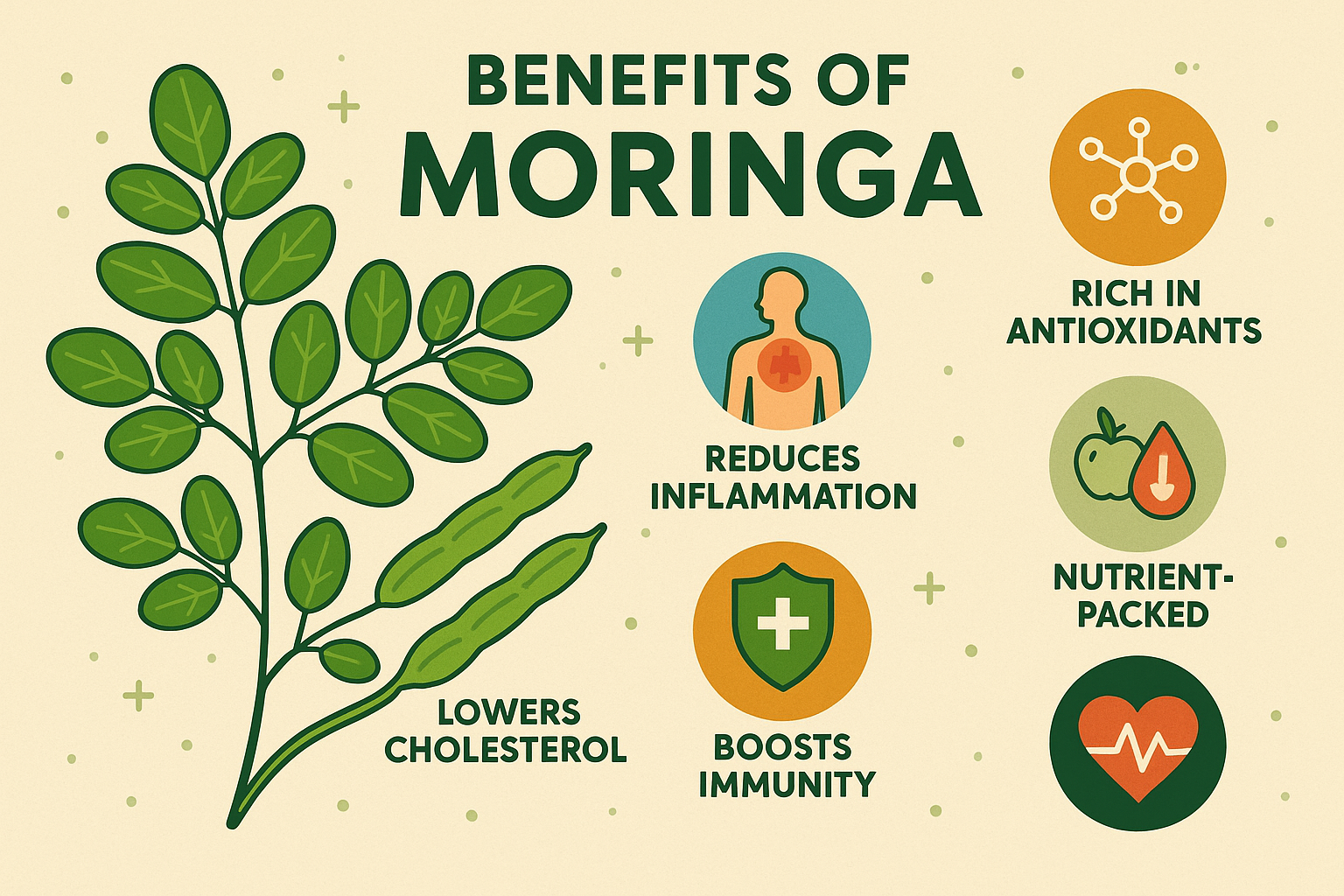The “Tree of Life”
Moringa oleifera is also known as the “Tree of Life” or “Miracle Tree” due to its nutrient-dense, healing, and sustainable plants, capable of nourishing entire communities from its leaves, seeds, bark, and roots.
This name reflects not only its health benefits but also its spiritual and cultural symbolism as a plant that sustains and renews life.
Press play to learn more about the power of Moringa!
Moringa is often described as “nature’s multivitamin.”
Every part of the tree—leaves, seeds, pods, and flowers—is edible and packed with life-sustaining nutrients.
7x more Vitamin C than oranges
4x more Calcium than milk
3x more Potassium than bananas
2x more Protein than yogurt
Rich in Iron, Magnesium, Zinc, and Amino Acids
Contains over 90 nutrients and 46 antioxidants
‘Some’ of the Many Benefits of Moringa
-

Regulating Blood Sugar
Moringa has been widely studied for its blood sugar–regulating effects, especially in people with diabetes or pre-diabetes.
Moringa leaves contain isothiocyanates and chlorogenic acid, compounds shown to enhance insulin sensitivity, meaning the body can use insulin more effectively to move glucose from the bloodstream into cells.
The antioxidants in moringa—especially vitamin C, quercetin, and polyphenols—help protect pancreatic beta cells (the cells that produce insulin) from oxidative stress, maintaining their ability to regulate glucose levels.
Because moringa is high in fiber and plant protein, it slows digestion, prevents glucose spikes after meals, and provides steady energy release—especially beneficial for people trying to manage diabetes or pre-diabetes through diet.
-

Heart Health
Moringa is often called a “heart-friendly superfood” because its natural compounds help protect the cardiovascular system and improve overall heart health.
Moringa leaves and seeds contain sterols, polyphenols, and fiber that naturally help reduce bad LDL cholesterol and triglycerides while supporting good HDL cholesterol. This helps prevent plaque buildup in arteries (atherosclerosis).
Some studies show moringa can lower total cholesterol levels almost as effectively as certain medications.
Moringa is rich in potassium, calcium, and isothiocyanates, which help relax blood vessels and improve circulation.
Regular intake of moringa can help balance blood fats — decreasing triglycerides and oxidized LDL (which damage arteries).
-

Gut Health
Did you know that pretty much everything going on in your body is tied to gut health including your skin, mental health, and overall physical health.
Moringa offers several powerful benefits for gut health, thanks to its rich combination of fiber, antioxidants, and anti-inflammatory compounds.
Moringa contains flavonoids and phenolic acids that have anti-inflammatory properties, reducing irritation in the intestinal lining. This can help relieve symptoms of IBS (Irritable Bowel Syndrome), bloating, and discomfort.
Extracts from moringa leaves, seeds, and roots have antimicrobial compounds that fight harmful bacteria such as E. coli, Salmonella, and H. pylori. The fiber and plant compounds in moringa act as prebiotics, nourishing beneficial gut bacteria like Lactobacillus and Bifidobacterium.
-

Men's Health & Performance
Boosts Testosterone and Libido. Moringa contain compounds like vitamin D, zinc, and polyphenols that help maintain healthy testosterone levels.
Animal and preliminary human studies show moringa can protect testicular function and improve sperm quality.
Moringa’s antioxidants reduce oxidative stress in the testes, which is a major cause of low testosterone and reduced libido.
Men report improved sexual drive and stamina, likely due to better hormone balance and circulation. Enhances Blood Flow and Erectile Function. Moringa supports healthy circulation, which is essential for sexual performance.
Its high nitrate content helps produce nitric oxide, a molecule that relaxes blood vessels and improves blood flow to the penis. This can naturally aid erectile function and endurance.
Moringa also helps lower blood pressure and cholesterol, reducing the risk of vascular issues that often cause erectile dysfunction (ED).
Improves Fertility and Sperm Quality. Moringa’s antioxidants, especially quercetin and vitamin C, help protect sperm from damage. Regular intake can improve overall semen quality & quantity. Antioxidant compounds help prevent sperm DNA fragmentation, improving conception chances.
-

Menopause Support
Moringa is very beneficial during menopause and can naturally help balance hormones, reduce common symptoms, and improve overall well-being.
It’s often called a “natural hormone stabilizer” because it nourishes the endocrine system, reduces inflammation, and supports both emotional and physical balance.Moringa contains plant compounds (phytoestrogens) that can gently mimic the effects of estrogen in the body — helping offset the natural decline in estrogen during menopause.
These phytoestrogens regulate hormonal fluctuations, reducing symptoms like hot flashes, mood swings, and irregular sleep.
Reduces Hot Flashes and Night Sweats. Moringa’s isothiocyanates and antioxidants help cool the body’s internal inflammation and regulate blood flow.
Supports Mood and Emotional Stability. Menopause often triggers anxiety, irritability, or sadness due to fluctuating hormones.
Moringa is rich in tryptophan, a natural precursor to serotonin (the happiness and calmness hormone).
-

Mental Health
Moringa is often called “food for the mind” because it nourishes the brain, reduces stress, and improves emotional balance through its unique blend of antioxidants, vitamins, and amino acids.
Boosts Mood and Reduces Anxiety. Moringa leaves contain tryptophan, an essential amino acid that helps the body produce serotonin—the “feel-good” neurotransmitter responsible for mood, sleep, and emotional well-being.
Fights Depression Naturally. Moringa’s nutrients work like natural antidepressants by balancing serotonin, dopamine, and norepinephrine levels—brain chemicals linked to happiness and motivation.
Enhances Mental Clarity and Focus. The rich iron and vitamin C content in moringa improves oxygen delivery to the brain, which enhances concentration, alertness, and memory.
Many users describe a sense of calm energy—being alert without jitters, unlike caffeine.
Supports Better Sleep. Because moringa is rich in tryptophan and magnesium, it helps the body produce melatonin naturally.
This promotes deep, restorative sleep, especially for people who suffer from insomnia caused by stress or overthinking.
The gentle calming properties make it a perfect evening tea for mental relaxation.
-

Anti-Inflammatory
Moringa is one of nature’s most potent anti-inflammatory plants, earning it a reputation as a natural remedy for pain, swelling, and chronic inflammation throughout the body.
Moringa’s leaves, pods, and seeds contain isothiocyanates, flavonoids, and phenolic acids—powerful plant compounds that block inflammatory enzymes and reduce the body’s production of inflammatory molecules (like prostaglandins and cytokines).
This helps calm systemic inflammation linked to arthritis, heart disease, and autoimmune disorders.
Moringa’s anti-inflammatory and analgesic effects make it a natural support for people with arthritis, joint stiffness, or soreness. It helps reduce swelling, pain, and stiffness by lowering oxidative stress in muscles and tissues.
-

Skin & Hair Health
Moringa is often called a “beauty powerhouse” because it nourishes the skin and hair from both the inside and outside. Its vitamins, antioxidants, and fatty acids make it a natural anti-aging, moisturizing, and protective remedy.
Rich in Antioxidants That Slow Aging. Moringa is loaded with vitamins A, C, and E, plus quercetin and chlorogenic acid—potent antioxidants that protect skin cells from free radicals caused by sun exposure, pollution, and stress.
Vitamin C in Moringa helps stimulate collagen production, improving firmness and elasticity.
Reduces Acne and Blemishes. Moringa has antibacterial and anti-inflammatory properties that help clear acne and reduce redness.
The zinc in moringa supports hormonal balance, reducing acne flare-ups.
Brightens and Evens Skin Tone. Regular use of moringa can help fade dark spots and hyperpigmentation thanks to its high vitamin C and antioxidant content.
Stimulates Hair Growth. Moringa is rich in vitamin A, zinc, and amino acids, which are essential for new hair cell production and healthy follicle function.
Improves blood flow to the scalp, encouraging stronger, thicker hair growth. Moringa’s antibacterial and antifungal properties help keep the scalp clean, reducing dandruff and itching.
-

Pet Health
Moringa offers a wide range of health benefits for pets, including dogs, cats, and even some farm animals. It’s a safe, natural superfood packed with vitamins, minerals, amino acids, and antioxidants that support pets’ energy, immunity, and overall wellness when used correctly.
Moringa supports pet joints, brain function, heart health, skin and coat health, oral and gum health, protects organs, helps with digestion and pet weight management and supports aging pets.
*Provide a safe small dosage and consult with your veterinarian.









